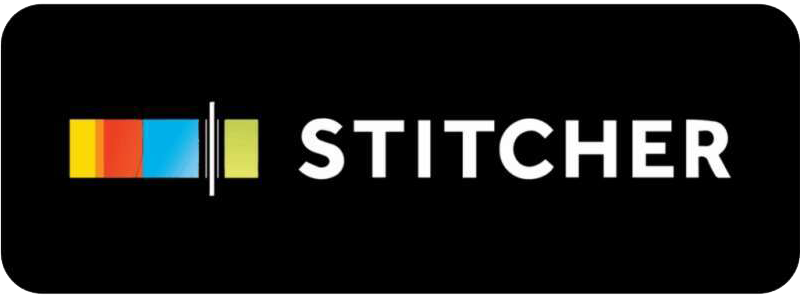December 14, 2021
Listen on:
Getting the Most from Your Year-End Review

Kenning Partners Jennifer Lachance and Cathy Boeckmann discuss how you can get the most out of your end of year review. They first look at two common but not ideal reflex reactions to feedback in reviews: “Not Me” and “All Me”. Since neither of these stances engage much with what you are hearing, Jen suggests a different one: “Let’s Talk”. Here you approach the feedback with curiosity: you try to truly understand what your reviewer is telling you, and you work to integrate it into your understanding. Jen delineates the power of this approach before, during, and after the review. And she explains how using it at review time can have positive after effects throughout the coming year.
Listen
Authors:
Related Articles:
Transcript:
Cathy Boeckmann: I’m Cathy Boeckmann. I’m a partner at Kenning associates. I’m talking today with my colleague Jennifer Lachance.
Jen: Hey there, also with Kenning associates.
Cathy: Our topic today is performance reviews. This is part of people’s lives within organizations. I think every organization wants to provide feedback to people on how they’re performing and it’s usually done annually or semi-annually.
Unfortunately, I think for a lot of people it can feel a bit like a box checking exercise that you are forced to do by HR. That’s a little disappointing because from our point of view as people who really think a lot about how you learn and grow at work, it feels like a giant missed opportunity if people have that mindset about the performance review.
We’d like to talk today about some different ways to think about it and most of all, how to make it more rewarding for yourself. There is the potential for any review to really help you grow, help you plan your career, help you figure out what you’re good at and what you want to be good at. And frankly, if you want it to feel that way there are some things you can do.
Jen: Cathy, I think you’re highlighting one of the key things here. Is that the idea of these reviews? They’re intended to be about growth and it’s an opportunity for you to take stock. Usually it’s at the end of the year, but it can be other times throughout the year as well, to just take stock of where you are, where are your strengths.
And then where also are these opportunities for you to continue to grow because we all constantly have things that we can grow in. And I think what you’re highlighting is one of the challenges that often it can be treated like this box checking exercise, as you mentioned. And in that moment a lot of times we lose the opportunity for growth. At that point we’re just crossing a task off of our list instead of really taking stock the way it’s intended to be used. But there’s this real opportunity there.
Cathy: Yeah. I agree anytime that you’re getting emails from HR, from sort of centralized systems and being told there are templates that you need to fill in on some enterprise software platform that doesn’t really feel like growth anymore for a lot of people.
Jen: That is another reminder in my inbox.
Cathy: All right. So Jen, let’s talk about. How you respond to the review itself. Right? Everybody knows there’s a moment when you’re going to sit down with your manager and you’re going to find out what your review is. Usually it’s a conversation. Ideally, it’s a conversation. Most of us get that kind of pit in the stomach feeling. At least I know I used to think, “Oh boy, here it comes.”
Let’s talk about some of the ways that people typically respond in that moment. So you’ve done some thinking and you have thought about three typical responses that people have in the moment to hearing their year-end review. Why don’t you tell us about the first one?
Jen: There’s three that we see in that first one. Often we think about it in terms of “not me”. There’s something around folks dismissing and sort of disengaging from the feedback saying that’s not me, that feedback isn’t valid for me.
Reality is that we all have a little bit of this in us typically. We can often get to that place of resisting the feedback by rationalizing why in this particular situation that’s not valid, you know? Well, no, there’s the counterexample here or there was some structural barrier that stopped me from being in that ideal state. There’s something where we push back and we dismiss the validity of what the feedback is trying to share with us.
Cathy: Given that that’s kind of natural and many of us will have a somewhat defensive reaction to the feedback we hear, why should we question that reaction? Why should we try to find a way to do something different?
Jen: When we do that, when we have that you know, that’s not me kind of reaction, which is sometimes as defensive, we usually lose the opportunity for learning. So we are getting new information from somebody or from a group of people, either a manager or a range of people that we work with. And we’re rejecting that information rather than giving ourselves space to play with it, to take it in, and to really examine it differently.
And in a lot of ways we lose the opportunity, not only for growing, but also for collaboration with someone else to say, “Huh? Okay.” What’s your experience in that moment? And how can I understand how that informs how I want to show up going forward? We lose the space for that question.
Cathy: I think what I’m hearing you say is that it’s very hard to learn if you are thinking about the information that’s being provided to you as something you have to argue against. By definition it means you’re not going to absorb anything new that you don’t already know.
But what I like about what you’re saying is that there’s a different way of hearing the information that is about playing with it. Can you say a little more about that?
Jen: I think that when we have this not me reaction, we lose the space to kind of look at the information and figure out what we want to do with that information. We essentially lose the space to say what’s my choice around this information. Because instead we’re using our reactive tendency or my choice has been taken away essentially by saying, “No, I refuse to listen to that information.”
Cathy: So the other thing I hear you saying, Jen, is that if somebody gets into sort of an oppositional stance here where they are dismissing and disengaging, then at this point they have shut down the possibility for collaboration. How are you defining collaboration?
Jen: The way that I think about collaboration there is around thinking about, what does the future state look like? What is the opportunity here? In a lot of places, we have our own sense of how we’re doing, and others have a sense of it too. When we get this feedback it’s an opportunity to merge those two. That’s what I think about collaboration.
But when I essentially say your perspective that you’re sharing with me, for whatever reason, doesn’t resonate, I lose the opportunity to co-create what that future could look like.
Cathy: So if saying not me and dismissing and disengaging is probably not a helpful way to approach your performance review at the end of the year, what’s another way that some people show up in that moment.
Jen: The other pattern that we see a lot is kind of the flip side of the not me, and it’s “all me”. Where not me is kind of, I’m going to dismiss the feedback, the all me is kind of that I’m going to accept it fully and fully take it on. And there’s probably a little bit of that in all of us as well, an inherent belief that there’s more that I could have done. I should’ve been better.
But in this case you’re taking all of this information and you’re trying to take it all on. Whereas in not me you lose the opportunity to learn, this all me, it isn’t the best place for learning either, actually, which seems somewhat counterintuitive.
But when you think about it, when you take on that information, you again lose that spot where I can recognize that you have feedback to give me, and I have a perspective as well. I’ve now completely gotten rid of my perspective and I’m switching over it to someone else’s perspective entirely. And so I lose the space again for really deep learning and co-creating what the future could look like.
Cathy: I hear you, there’s something a little paradoxical about this, because we would think that the person who took the all me response and listened to everything the manager said and believed it 100%, that we would call that learning.
But I think you’re saying something nuanced here, which is that it’s not actually learning, it’s more like memorization. It’s more like taking information and just slotting it into a box in your mental landscape. It doesn’t actually mean that you’ve done something that contributes to your own growth.
Jen: Yeah, absolutely. When we take this all me approach, we one, tend to devalue the real experiences and the real perspective that we have. And then two, we kind of take on this other person’s input as a gold standard that we have to judge against. But if it isn’t something that you’ve had time to really deeply process and make your own, it’s really hard to enact somebody else’s gold standard.
Cathy: That sounds like a downside, right? That your own judgment now is taken out of the equation, and now the standard for performance is, is my manager happy?
Jen: Exactly. Your manager’s perspective or whoever’s giving the feedback, their perspective is important, and it’s real, but it isn’t the entire picture. You also have a perspective that’s incredibly important.
Cathy: What are some of the other downsides of the all me response?
Jen: It’s funny, it does feel intuitively like this is what possibly managers are looking for, but there are some real downsides to this. In particular it can lead to someone feeling really demotivated, or underappreciated. “I thought I was doing a good job and I’m getting this feedback and I’m now assuming that everything I was doing was wrong.” And so I kind of can find that to be something that makes it hard to figure out where do I go next? So I can feel kind of untethered in a lot of ways.
There’s two other downsides that I want to highlight, one is that in some ways we can over-index on that feedback to the extent that if you know the saying, you know, don’t throw the baby out with the bathwater you can over-index so much on that feedback that you start to over-correct and you lose some of the things that you were doing well, or that were really working.
And the third one is that for some folks this can trigger feelings somewhat similar to the imposter syndrome. This idea that, “Oh my gosh, I got this feedback and I don’t know what I need to know.” I’m not even sure what I should be doing because I’m indexing entirely on an external perspective. I can’t find my reliable compass internally and that can be very confusing for folks.
Cathy: So it sounds like both of these two typical responses the not me and the all me are both characterized by a lot of all or nothing thinking, and that there are considerable downsides to taking either of these stances. What is another way to respond that’s more productive?
Jen: The third response that I think we would say is the most productive here is somewhere in the middle. And I think of it around something around “let’s talk”. It’s this opportunity to see the other person’s perspective, the input that you’re getting and take some time to meaningfully evaluate it.
So this is a mode where you seek to understand what you’re hearing in a deeper way to ask questions until you think you’ve got it. And then to merge it with your own perspective as well, to recognize that there are two really valid thoughts out there. There’s the perspective you’re hearing and there’s also the perspective of what you’re bringing into it. What’s the opportunity there, where do they merge and where don’t they? And that’s where your learning can happen. That’s where, you know, when we talked about playing with stuff, that’s the space where you can really play.
Cathy: It sounds like you might latch on to things that really feel like insights, truly things you didn’t know that feel helpful to know, but also just name the things that you’re still confused about, that you can continue to make sense of this feedback, even after this conversation, but you can be clear for yourself that I don’t know you want to go sleep on it. You’re not really sure yet what to make of it because some things add up and somethings don’t.
Jen: Yeah, that’s exactly it. Rarely are you going to have the answers or the solution right away and to give yourself time to think about it, where does this stuff show up for me? What could I learn through that? We would say that success in this moment is to bring curiosity and a desire to think more. And to put things together in a different way. But allowing yourself curiosity can often feel like confusion in that moment and that strength, that shows growth.
So I often think about Carol Dweck’s work around, you know, the growth mindset. If you can end every single thought there with the word yet. I don’t know how to do that yet. I haven’t tried that yet. Anything like that can give you space to allow for that curiosity and some of that confusion to come in, but that’s where the learning will happen.
Cathy: I like that formulation. I mean, you could even bracket off pieces of the feedback that you hear and say, I don’t know what to make of that yet.
Jen: Exactly.
Cathy: And then that becomes a little project for you, to try to think more deeply. And maybe talk to more people and gather more data and try to construct for yourself something that feels meaningful and important out of the feedback that may initially have been confusing.
Jen: And it gives you the space to do that. I try and put yet in a lot of my sentences for myself in full transparency just to try and give myself that time and that space.
Cathy: And there’s a way in which I think that this is sort of a more productive and relationship building way to engage with your manager. Why don’t you talk a little bit about how you’re hoping that this experience feels for your manager?
Jen: That’s a great question. Because putting together a meaningful performance review takes time. And when you engage in this let’s talk way, this way of letting me really understand this and play with this. Not only is about you learning, but you’re also signaling to the other person or the people that created this review for you, that you value the time they put into it and the perspective that they’re bringing.
And so you set a tone that that time was worth it for them and that you value their input and you’re seeking to grow from it. And that can really create not only a positive moment there, but also over time. That you’re signaling that this investment that you made in me, there was a return on that investment in terms of I valued it and I’m using it and I’m doing something well with it.
Cathy: That sounds a lot more inspiring.
Jen: That is the hope.
Cathy: So Jen, what I think you’re getting at is a mindset that might sound appealing to a lot of people, all or nothing thinking, is not sophisticated thinking. And all of us would like to have a really balanced reaction to our year-end review, but we all know that’s actually in the moment not the easiest thing in the world to do.
What advice do you have for people who might want to take this let’s talk kind of approach? How can they increase their chances of being successful?
Jen: That’s the key, right? Is we can all say, “Oh, that sounds great to me,” but what does it mean in the moment? I think when you’re preparing for a review with a let’s talk approach, you want to think about it in three elements. It’s what do you do before the review? What do you do during the actual review? And then what do you do afterwards? Because this isn’t just that conversation, but it’s how you prepare for it and then it’s what you do afterwards that really embodies this let’s talk mindset.
So before the review, you want to do some prep. First is to reflect on your ideas on your growth opportunities. Before you hear from anybody else, what is your perspective? Where do you see some of the things that are your strengths and where do you see the things that you want to work on in the future?
Then you want to think about what you think others might say about their experience with you. And the key here is not your experience, but what they experienced of you. So to take a little time to imagine what was it like being in that person’s seat when they were dealing with me this year, what might they say about me? And just start to think about, again, what would they say about your strengths and where would they identify some growth opportunities?
And if we’re being human about it, as you prepare for one of these conversations we all have things that we think, “Oh, that probably wasn’t ideal.” If you anticipate anything that might be particularly difficult for you, to take a minute to think about what would it mean if that showed up. And then how would you like to respond?
So think in advance in that moment, when somebody brings up that I was late on those emails multiple days in a row and that was an experience that was really tough for me. What do I want to say in that moment to show a let’s talk mindset rather than not me or all me?
Cathy: I think for a lot of people, this might be familiar if they have ever done competitive sports or worked in some sort of a performance driven context. It’s really nice to mentally imagine what the experience is going to be like and to have a plan for what you’re going to do if certain challenges arise or you’re met with something that may be difficult for you to have anticipated and to be ready for it.
Jen: Sometimes I will encourage folks to write in advance their follow-up email just as a draft. Don’t send it obviously, where you might say, you know, I really value the feedback you gave. I really value the conversation we had about this.
Now who knows what will actually come up in the conversation, but having a little space to think about how would I encapsulate that afterwards if it came up, can really help you formalize how you think you want to respond.
Cathy: Okay, let’s talk about the actual review. So you’re sitting there in the moment with your manager having this kind of charged conversation. What are some things people can do?
Jen: I think the biggest thing is to bring in, when you can, that growth mindset and to listen with curiosity. Ask a bunch of questions, seek to understand as much as you can. You don’t need to solve the problem in the moment. Although many of us will want to. Many of us will want to say, oh, I can change that tomorrow. I’ll stop doing X, Y, or Z. And instead, just give yourself the space to listen, to understand and to pause on problem solving.
In the process of understanding, you’re probably going to ask for examples, you want to get really concrete with things. Those examples sometimes can bring up that not me response that, “Well the reason that wasn’t true,” in that moment instead just listen for the examples. You’re just trying to understand what the other person’s perspective is.
And so essentially you’re listening to the truth of other’s experiences of you. Their experience is real. You may not agree with all of it, and that’s the value of bringing your let’s talk perspective. I have my perspective and you have yours, and we’re looking for the space where we can co-create going forward. But in this moment, it’s your opportunity to just hear the other person’s perspective.
Cathy: What you’re describing to me sounds very much like understand the story that somebody is telling to you on its own merits as a valid thing. It’s somebody else’s story, and therefore it has a certain reality, and it’s the truth for them, but that doesn’t make it the truth with a capital T and makes it a story that it’s possible for you to understand better, but it’s not necessarily your truth.
Jen: Exactly, that the goal during the review is to understand that truth. And a good clue that you’re really playing with it is if you feel confused. That’s a good sign in the moment.
You know, sometimes we ask people, would you want to make a decision with half the information or all the information? Everyone will say, all the information. Okay. Well, this is exactly the kind of situation where you have an opportunity to hear the other perspective so that you can afterwards take some time to think about it and think about what now is the right decision now that I have the information at hand and not just my perspective.
Cathy: The final piece here then I guess, would be after you have done your prep, shown up with a lot of curiosity in the review conversation with your manager. That conversation is now over. What are some ideas that you have for what somebody does next?
Jen: The first thing is to just give yourself some time to think about it, to really reflect meaningfully. And in particular, if you think about this idea of getting all of the information in order to inform what happens next, essentially you’re uncovering a blind spot. Somebody who’s giving you information you didn’t have before or in a way you didn’t have it. And so just like you know, spinach in your teeth, somebody has now let you know that there’s something going on that you might not have been aware of.
And now it’s in your purview to figure out what do you want to do with that. So the first thing is just giving yourself that time to reflect. Looking forward, a good performance review can often identify multiple things that are strengths and multiple things that you want to work on.
We all will often have an instinct to say, I’m going to try and fix all of it. But instead, really want to encourage folks to identify one thing, maybe two, that you want to work on first. Identify the thing you’re most motivated to tackle, and then dig in there. So reflecting on things like, what support do you need to do this? What does good look like? What is it that I’m aiming for?
And that can be a process and a collaborative conversation with your manager, with others around you to really understand, what am I aiming for here? And then can you recognize a gap between good, what you’re aiming for, and where you are now? And that may be in terms of your skillset or in terms of others’ experiences of where you are right now. And so those are the kinds of questions that you want to take time for after the review.
Cathy: So the year end review, finally, is a box that has to be checked. And for good reason, HR departments hold us accountable to making sure that these conversations happen. But checking the box isn’t the point, we know that. Growth is the point.
And so if you have really gone about having a great conversation with your manager, you’ve processed the review. You’ve asked all your curious questions. What are some ways that you can keep up the momentum without treating this like an HR driven exercise?
Jen: The first time you use a sort of let’s talk approach, It can be a little bit of a mindset shift for a lot of folks. It’s the first time you’re practicing a different way of really listening to feedback, moving away from that not me or all me, but instead saying, okay, where’s my opportunity here for growth and learning.
And there’s nothing that says that that has to happen within a performance review cycle. It’s just that that might be a great spot for you to start and to try. But the nice thing is that as you try it out the first time, my prediction is that folks will uncover a lot of potential and a lot of meaningful growth that comes out of that kind of way of thinking.
So then I think there’s an opportunity after that, to try out that same way of thinking and being in small and big ways. We often talk about safe to fail experiments. This is one that’s very, very safe. Rarely is someone ever going to give you feedback and be annoyed that you really want to understand it. And you’ll find spaces for that all throughout your life, personal, professional, formal, informal, but the opportunity there is to just keep practicing it.
And what we see over time is that it starts to become muscle memory for folks, who are intentional about practicing this way of thinking early on, we’ll find that it infuses throughout the year after that. Not just when you have to check that box for HR.
Cathy: Jen, it sounds like you’re saying you could ask your manager and other people for feedback on a regular basis and practice really listening to what they have to say next.
Jen: Yes. All the time. You really can. There’s always an opportunity to grow, to learn, to hear somebody else’s perspective. And for that to become a way for you to continue to improve in these ways that are meaningful for you.
Cathy: Thank you so much, Jen, for talking to us today about this really important topic for people’s growth and development. I hope our listeners got a lot of it.
Jen: Really happy to be here. Thank you so much.







